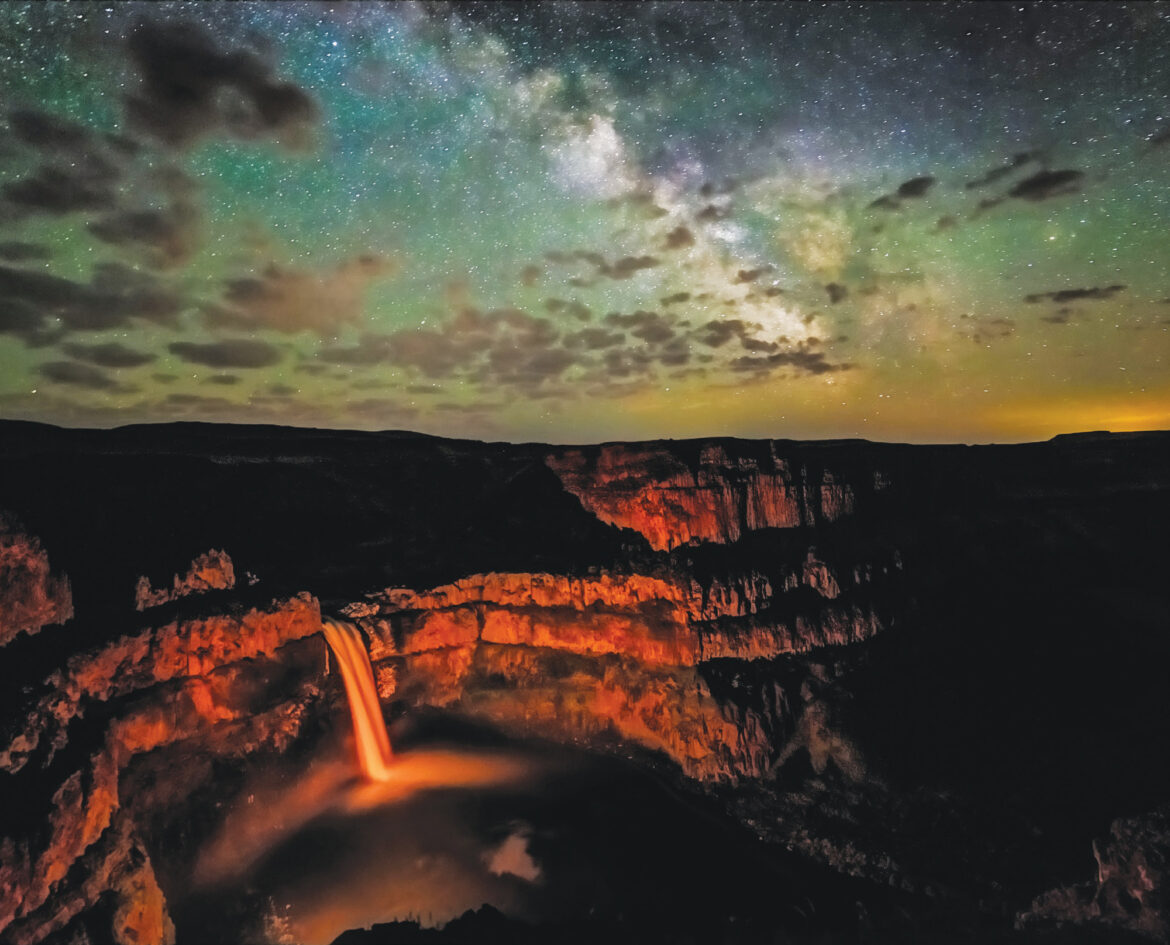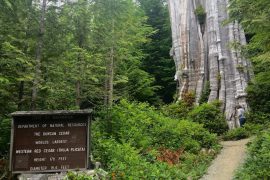Four dark locations across the state for optimal celestial shows
written by Jen Sotolongo
Embark on a celestial journey across Washington and discover some of the best places to witness the night sky unfold in a breathtaking display. Found in all corners of the state, these stargazing spots offer some of the best celestial panoramas in Washington. Prime stargazing season runs from late spring through early fall, due the lack of cloud coverage. Washington by day showcases its diverse beauty, and a clear night can be equally stunning, unveiling an entirely different spectacle.
Palouse Falls State Park
Revered for the impressive cataract that plunges 200 feet into the Palouse River, Palouse Falls is worth a visit just to witness the falls, but given its out-of-the-way location in Eastern Washington, it’s worth staying for a night or two. Stargazers can enjoy an unfiltered pitch dark canvas to observe constellations, planets and meteor showers.
For an optimal stargazing experience, plan your visit during moonless nights when the stars shine their brightest. Visitors can set up telescopes or simply lay back on the grassy areas near the falls, absorbing the celestial wonders above.
While Palouse Falls State Park is accessible throughout the year, the best stargazing conditions occur during the warmer months, from late spring to early fall. This period ensures clear skies and comfortable temperatures for an immersive night under the stars. Camping is available in the park.
Goldendale Observatory State Park
Perched atop a hill in Goldendale, a tiny town in southwestern Washington, Goldendale Observatory State Park is one of the best places in the state to peer into the night sky due to the minimal light pollution and elevation at 2,000 feet.
Home to one of the largest and most accessible public telescopes, the Goldendale Observatory provides educational programming for free. In the evenings, the observatory has several telescopes available for public use, with expert staff available to answer questions and point out notable stars, planets and constellations.
If you want to learn about the solar system, the park offers afternoon programming where visitors can learn about the sun. After staring (safely) into the sun, enjoy the views of the valley and surrounding mountains with a picnic lunch at the park.
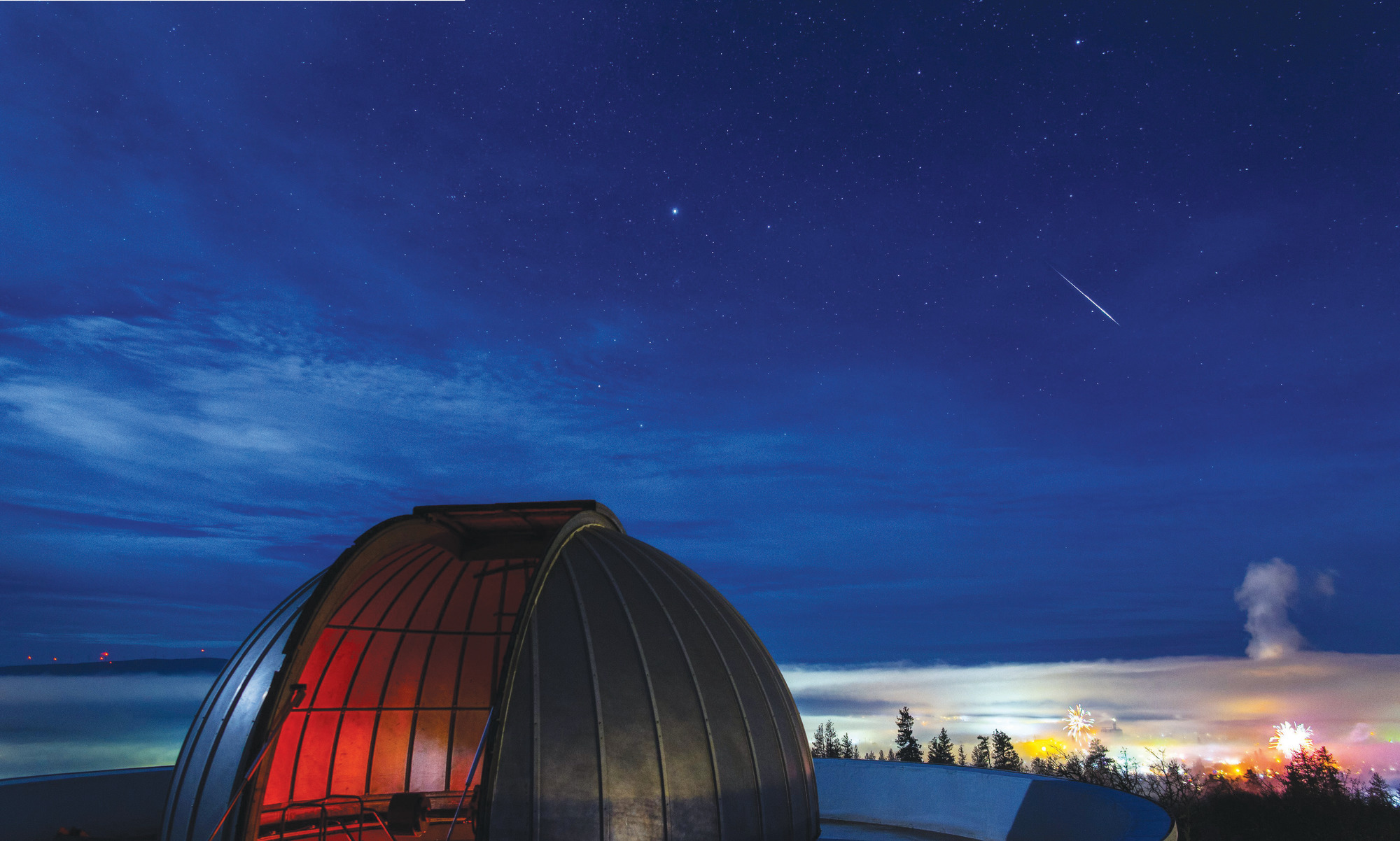
Photo by Troy Carpenter
Table Mountain Star Party
In the remote reaches of the Okanogan in the town of Oroville, the Table Mountain Star Party unfolds as an extraordinary spectacle, offering a unique blend of stargazing and community engagement against the scenic backdrop of the Cascades. In past years, this annual event transformed Table Mountain into a hub for astronomers and stargazers, creating an immersive experience that captivates both seasoned sky gazers and those new to the wonders of the cosmos. This year, the event—soon to be known as the Washington State Star Party—is changing locations, but will still be located in North Central Washington.
The event provides four days of night sky viewing. Visitors can bring their own telescopes or join guided sessions led by experienced astronomers, diving deep into the celestial wonders overhead. The event coordinators strategically plan the party to coincide with summertime astronomical events, ensuring attendees witness meteor showers, planetary alignments and other celestial phenomena. Programming includes guest speakers, workshops and opportunities for astrophotography.
To fully embrace the Star Party experience, attendees are encouraged to bring camping gear and set up beneath the stars. The overnight event allows participants to witness the transition from the last light of sunset to the emergence of a glittering tapestry.
Olympic Peninsula
On the pristine shores of the Olympic Peninsula, stargazing becomes an ethereal experience. The combination of dark skies and the soothing sounds of the Pacific Ocean provides a mesmerizing backdrop for astronomy enthusiasts. Away from city lights, the beaches offer an immersive stargazing experience where constellations reflect on the wet sand, mirroring the celestial beauty above.
Pick just about any favorite beach for the experience, such as Third Beach, Rialto or Ruby Beach. For an unforgettable experience, bring a blanket, lay back on the sandy shores and watch the sky transform from a spectacular beach sunset to the decorated night sky.
Campgrounds and lodgings along the coast cater to those wanting to spend a few days enjoying the Peninsula. Coastal stargazing is best experienced during clear nights, especially in the warmer months. Late spring to early fall provides optimal conditions.
Also in the Olympic Peninsula, Olympic Telescope has offered free public telescope viewings and nighttime hikes at Hurricane Ridge during the summer months for over a decade. Visitors will have the opportunity to see galaxies, nebulas and star clusters on optimal viewing nights during this special experience.
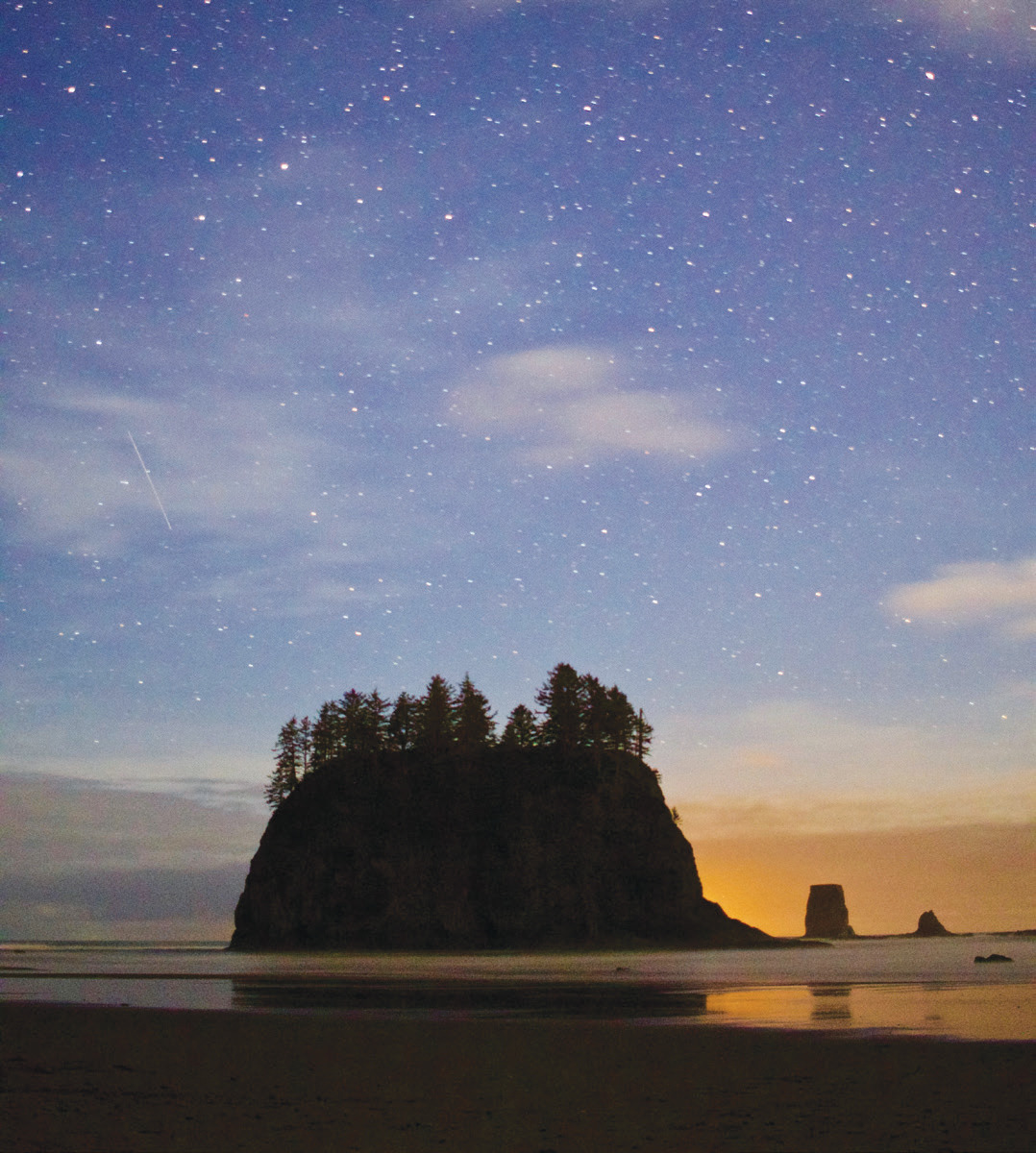
Photo by Olympic Peninsula Visitor Bureau
Whether camping under the stars at Palouse Falls, joining a night sky party in the far reaches of the state, attending an educational program at an observatory or simply looking up from the sandy shores of the Pacific Ocean, Washington’s night skies offer a humble yet awe-inspiring spectacle that anyone who appreciates the vast expanse of the universe will enjoy.


